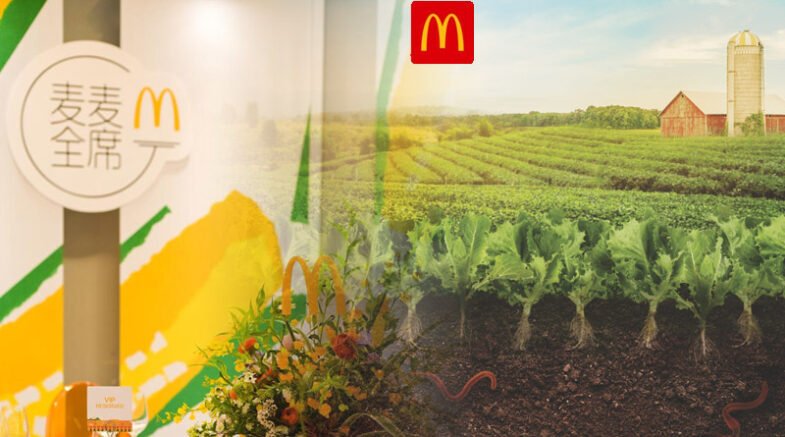The McDonald’s China Regenerative Agriculture Plan officially began on March 24 in Shanghai, according to an announcement from McDonald’s China.

The McDonald’s China Regenerative Agriculture Plan officially began on March 24 in Shanghai, according to an announcement from McDonald’s China.
Together with important suppliers, the company is working to safeguard the agricultural ecosystem and environment while preserving a high-quality food supply.
More than two-thirds of the ingredients purchased by McDonald’s China were provided by the nine major suppliers, which included Bimbo QSR, Cargill, GSF, Lamb Weston, McCain, McCormick, Simplot, Sunner, and Tyson.
The nature, soil, water, livestock, and farmers will be the five main focuses of the McDonald’s China Regenerative Agriculture Plan. Along with accelerating the growth of sustainable and low-carbon agriculture, the plan will support McDonald’s global 2050 goal to be carbon neutral.
During the first phase, which runs from 2023 to 2028, four key actions will be undertaken: promoting regenerative agriculture concepts and methods; quickening the development and modernization of regenerative agriculture test farms; ensuring that the implementation is compatible with the local agricultural context; and expanding collaboration partnerships to scale up regenerative agriculture coverage.
According to the company, the plan will empower about 2,000 core farmers; more than 20,000 farmers in their communities will start practising regenerative agriculture; and 10 test farms will be established by 2028.
“We are dedicated to achieving our goal of nourishing and enhancing our communities. We make everyone’s access to delectable and uplifting moments simple. While minimising the environmental impact of our supply chain, we make sure that the ingredients in our food are natural, fresh, and safe, “McDonald’s China Chairman Zhang Yichen said.
39.3% of young consumers in China, according to a report on sustainable consumption by Chinese youth published by the Beijing-based think tank EqualOcean, intend to adopt a sustainable lifestyle.
Following its entry into the market, McDonald’s China is also following the trend. For instance, more than 450,000 acres of land used to produce food and packaging paper for McDonald’s China have been certified as having zero deforestation. Additionally, since 2015, McDonald’s China and its supply chain have avoided using over 2 million tonnes of water.
The company will start a series of consumer communication and experience activities, including illustrated introductions and videos on its official app, to help consumers understand McDonald’s China Regenerative Agriculture Plan.
According to Gu Lei, McDonald’s China’s chief impact officer, “We not only hope to promote renewable agriculture through the supply chain with farmer partners, but we also hope to deliver customers with a green experience, lead a green and low-carbon lifestyle, and achieve greener development through McDonald’s restaurants throughout the country.”
By December 2022, McDonald’s, a multinational chain of restaurants, had over 38,000 locations worldwide, including 5,000 in China.